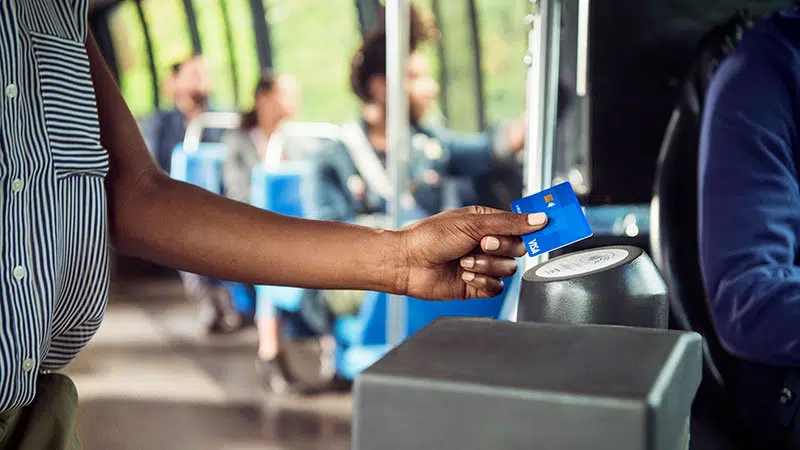With its core ride-hailing business ravaged by the Covid-19 pandemic, Uber Technologies Inc. has been looking to move further into adjacent transportation markets, including mass-transit ticketing and payments. This week, the company said it had bought Routematch Software, a 20-year-old, Atlanta-based developer of systems that manage trip booking and ticketing, among other functions, for more than 500 public-transit agencies.
“This acquisition brings together Uber’s expertise in on-demand, global mobility technologies with Routematch’s proven capabilities across paratransit, payments, fixed-route tools, and trip planning services,” Uber says in its announcement. The company did not announce the terms of the deal.

Uber says it has been working with public-transportation agencies since 2015, but now, with stay-at-home orders, business shutdowns, and infection fears induced by the pandemic having taken a toll on demand for ride-sharing, the company appears ready to expand its involvement in public transit. Last year, it started selling train and bus tickets on its app in Denver, and in the months since it has included transit schedules in the app for agencies in other cities.
In January, it rolled out transit ticketing in Las Vegas, working with software vendor Masabi Ltd. and the Regional Transportation System of Southern Nevada. The system lets users buy RTC tickets through the Uber app and use their smart phone to ride.
In related news, Visa Inc. said Thursday contactless transaction volume around the world on public-transit systems has rebounded 187% on its network since the end of April. Because of shelter-at-home orders and infection fears, volume had plunged 35% in March compared to February and another 82% in April, according to Visa, which did not disclose actual volume numbers.
“Globally, Visa now has more than 500 active [contactless] transit projects and has helped a number of cities launch tap-to-pay solutions over the course of the pandemic. Projects in Brussels, Bratislava, Bucharest, Hong Kong, Santo Domingo, and Turin are now live, with more projects deploying rapidly,” the payments network says in a news release.
And some public transit agencies are working to prepare for increased contactless usage, including through mobile wallets, as businesses reopen. The Southeastern Pennsylvania Transportation Authority, which serves Philadelphia and its suburbs, said Thursday it is upgrading more than 4,000 fare validators on buses and trolleys and at stations to accept Apple Pay and Google Pay.
The system will start a pilot for the mobile wallets by the end of the year, according to news reports, which add the test will allow payments for single trips only to start with before enabling passes later on. Part of the goal is to protect riders and employees from infection, the reports say.
Though the pandemic may spur more such developments, transit authorities across the country have for months been converting fare-payment systems to contactless acceptance.





